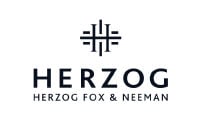

Vice president, head of legal | HiBob






Daniel Neiger
Vice president, head of legal | HiBob
Team size: Six
Looking forward, what technological advancements do you feel will impact the role of in-house legal teams in the future the most?
The past few months are evidence of how the future may be. AI tools are surfacing one after the other intending to shorten hours of work and provide amounts of information in no time.
While this feels like the dawn of a new extremely smart era, with the aim of autopilot capabilities, we are probably yet in the semi-autopilot stage where high level judgement remains an essential part of the process and as such requires actual people. I assume that the combination of these smart tools will set the foundations of the future legal in-house team. These features may impact dramatically the productivity, efficiency and structure of legal teams, while requiring each team member to be the best in class.
In a world where due-diligence can be managed by automated tools, and basic contracts may not require people on board – legal teams will consist of the best lawyers and probably lean on more experienced team members who can manage and lead certain complex cross board matters.
These new features will allow an initial fast response to customers, better cross-collaboration, and at the same time will require people at the forefront of managing risks and plan their strategies. Such tools require experienced team members to be maintained and managed – teams will have new roles such as legal ops or legal IT, and there will be enhanced collaboration with other stakeholders such as IT and security.The result of these new tools will not necessarily be less manpower, but it will definitely require adjustments and re-focus of the legal team, creating a new structure of legal operations accompanied with highly experienced lawyers equipped with the highest soft skills.
The future is just here – smart, fast and extremely efficient.
What would you say are the unique qualities required to be successful as an in-house lawyer in your industry?
Generally speaking, I believe that a good in-house lawyer is an efficient one, with the ability to provide swift short solutions to the organisation. The tech industry is an extremely fast phase one, where you have numerous areas of work on extremely diverse time zones and regulations.
Great lawyers and team leaders have transversal legal knowledge combined with the ability to be fast, responsive and the know-how to ease up processes.
What can law firms do to improve their service to the legal department?
Large scale -tech law firms are dealing with increasing competition and high volume of work and are probably always on the borderline of professionalism versus fast response. Law firms should invest more efforts on providing fast responses while maintaining the highest degree of professionalism. Automated tools will actually be an incredible supplement for law firms assisting them with faster responses to their customers and the ability of managing numerous transactions with the most efficient resources.